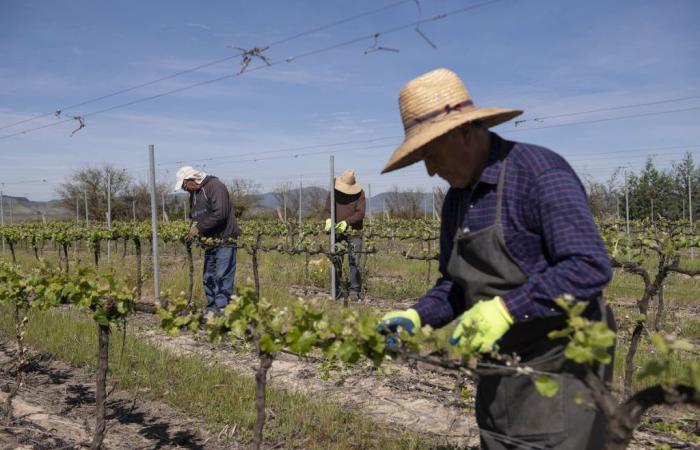“No sir, don’t lie.” With those words, President Gabriel Boric rebuked UDI deputy Sergio Bobadilla, who blurted out during his Public Account to the country that the half a million jobs that the president said had been created in his government corresponded to “public jobs.” After the interruption, President Boric continued listing figures that in the Government’s opinion confirm a much better moment in the economy, despite the pessimistic forecasts of many analysts. “Let the data do the talking,” said the president.
And the most recent data have been supporting the official thesis, although they must always be subject to the legitimate suspicion that behind them there may be a cherry picking (paraphrasing the president himself) or the use of conveniently chosen comparison bases that seem to confirm an acceleration or better relative performances, in circumstances that from other comparison bases, what they could be confirming is that there has only been a recovery of levels of the past or, what is worse, that we are still far from achieving positive figures, as the economist David Bravo has argued with great emphasis regarding the Chilean labor market.
The exercise of looking at the figures from all possible angles is fair and necessary, to avoid misunderstandings or bickering like the one encouraged by Deputy Bobadilla. And in the case of the labor market it is, especially, because what happens there is very close to what people’s daily experiences are. In the labor market, more than, for example, in the capital market, people suffer firsthand the good or bad state of things in a country’s economy. Here the data should temper the success phrases, because at the end of the day the final audience is the flesh and blood people who feed the statistics that are used.
Some figures on the state of affairs in this market given by David Bravo aim to establish that the country is not only going through a bad time, but that Chile is actually in the presence of an undeclared labor emergency. He has said, for example, that the current employment rate is similar to what existed in the country 10 years ago and that in this dimension Chile, along with Panama and Belize, maintains a substantial gap that places the country on the list of cases exceptional (that is, with one of the worst performances in the world according to what he said) that have not yet managed to recover pre-pandemic levels.
Other data that has come to light these days refers to the levels of informality existing in the Chilean labor market. Indeed, the latest data from the National Employment Survey of the National Institute of Statistics speak of a 3.7% increase in the employment rate, with 337,567 jobs created in 12 months, of which 171,000 were informal jobs, with which the stocks of informal occupations rises in Chile to nearly 2.6 million people or, in other words, the country registers an informality rate of 28%, a figure that hides precarious working conditions, especially for women, young people and older adults.
This last condition, that of informality, is also susceptible to diverse views, since there will be those who maintain that labor informality is a structural problem that crosses all of Latin America, where the 2022 data showed an average informal occupation of 48, 7%. However, this exercise of putting the national data in perspective (welcome) should not mitigate the urgency with which this and so many other labor market problems must be addressed that leave a trail of effects and liabilities with profound implications in terms of tax collection. , pension obligations, not to mention the disastrous effects it involves in terms of quality of life and personal satisfaction.
A few days ago, in an activity organized by the Manufacturing Development Society (Sofofa), the Minister of Finance Mario Marcel called for joining forces so that the phrase Chile is back, be more than a journalistic spot or a record on investors’ screens, and become a vigorous force that is expressed in the levels of dynamism of the economy. The ministerial call could not be more pertinent, especially for those millions of people whose existence is debated in experiences more significant than what the people are saying. data. Because, borrowing the title of a book by Houellebecq, the map is one thing and the territory is quite another.
Subscribe here to the EL PAÍS Chile newsletter and receive all the key information on current events in the country.


